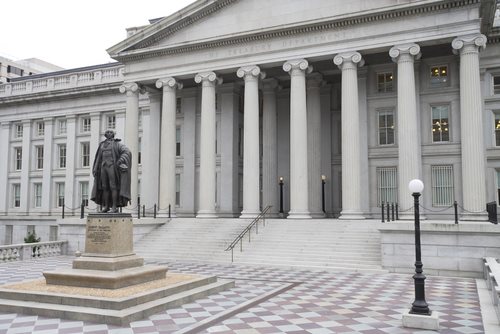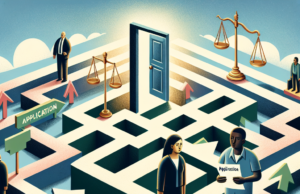
Do You Know About the State Department?
The United States Department of State, commonly referred to as the State Department, is the federal agency that is responsible for the implementation of foreign policy in the United States. The Department was established in 1789 and is headquartered in Washington D.C.
The State Department is responsible for a wide range of activities, including managing diplomatic relations between the United States and other countries, providing advice and assistance to the President and other senior officials on foreign policy matters, negotiating and implementing treaties, providing consular services to U.S. citizens abroad, and conducting public diplomacy.
To better understand what the State Department does and why it matters, let’s take a closer look at some of its key functions and activities.
Diplomacy
Perhaps the most visible function of the State Department is diplomacy. Diplomacy is the art of negotiating and managing relationships between nations in order to achieve political, economic, and other goals. The State Department carries out this function in a number of ways:
1. Embassies and consulates: The State Department maintains a network of more than 260 U.S. embassies and consulates around the world. These facilities serve as the primary points of contact between the U.S. government and foreign governments, providing a range of services to American citizens living and traveling abroad.
2. Diplomatic corps: The State Department’s diplomatic corps is made up of career diplomats, political appointees, and foreign service officers who work to represent U.S. interests abroad. These individuals are responsible for negotiating agreements, promoting democracy and human rights, and managing crisis situations.
3. Treaties: The State Department plays a key role in negotiating and implementing treaties between the United States and other countries. These agreements cover a wide range of issues, including trade, national security, environmental protection, and human rights.
Foreign Aid
In addition to diplomacy, the State Department is responsible for administering foreign aid programs. U.S. foreign aid is used to support economic development, promote democracy and human rights, provide humanitarian assistance, and address global health challenges.
Some of the important foreign aid programs managed by the State Department include:
1. USAID: The United States Agency for International Development (USAID) is responsible for administering U.S. development assistance around the world. The agency provides funding to support things like education, health care, and economic development in developing countries.
2. Emergency relief: The State Department also plays a key role in providing emergency assistance to countries in crisis. This may include responding to natural disasters, providing food and shelter to refugees, or supporting countries experiencing political turmoil.
Public Diplomacy
Finally, the State Department is also responsible for conducting public diplomacy. This function involves promoting the U.S. government’s message and values to foreign audiences in order to build positive relationships. Some of the key activities involved in public diplomacy include:
1. Cultural exchanges: The State Department sponsors a range of cultural exchange programs that bring people from different countries together to share ideas and learn from one another. These programs can include everything from student exchange programs to cultural festivals.
2. Information campaigns: The State Department also works to promote U.S. views and values through information campaigns. This may include things like public service announcements, social media campaigns, and other forms of messaging.
3. International Broadcasting: Finally, the State Department is responsible for managing the U.S. government’s international broadcasting services, which include outlets like Voice of America, Radio Free Europe, and Radio Marti. These services provide news and information to audiences around the world.
Recent Developments
The State Department has been at the forefront of several recent developments in U.S. foreign policy.
1. Climate change: In recent years, the State Department has been working to promote international action on climate change. This includes negotiating agreements like the Paris climate accord and working to build international support for renewable energy and emissions reductions.
2. North Korea: The State Department has played a key role in U.S. efforts to address the ongoing crisis on the Korean peninsula. This has involved negotiations with North Korea over its nuclear program, as well as efforts to coordinate international responses to the growing threat posed by the regime in Pyongyang.
3. Cybersecurity: Finally, the State Department has been working to address growing concerns over cybersecurity. This has involved supporting international norms and standards for cybersecurity, as well as working with other countries to identify and combat cyber threats.
Conclusion
Overall, the State Department plays a key role in shaping U.S. foreign policy. Its diverse set of functions and activities help to support U.S. interests around the world, promoting everything from democracy and human rights to economic development and emergency relief. While the State Department often operates behind the scenes, its work is essential to advancing U.S. interests abroad and building positive relationships with other countries.
The term “State Department” can be used to refer to a number of different government entities. In most cases, individuals who use this term are referring to the United States State Department, which is a branch of the federal government. The federal State Department is responsible for overseeing international relations and diplomacy efforts, as well as protecting American citizens who are traveling to foreign countries.
This government entity maintains bases from which it operates in many countries throughout the world. The State Department works with embassies and consulates established throughout the world, in order to assess travel conditions, protect American citizens, and promote diplomacy and cooperation. This organization also issues passports to American citizens and visas to visitors and immigrants.
In additions the the United States State Department, there are a number of state government entities that have adopted this title. For example, the New York State Department of State is a government organization that operates on a state level in New York.
Though all states maintain Departments that possesses similar duties and responsibilities, only a few state have adopted the title “Department of State” for these organizations. In general, a Department of State that operates on a state level is obligated to regulate the economic sector in its state, license businesses and professionals, improve the living conditions in its state, and protect the residents of its state. The exact responsibilities of the Department will vary from one state to another.















